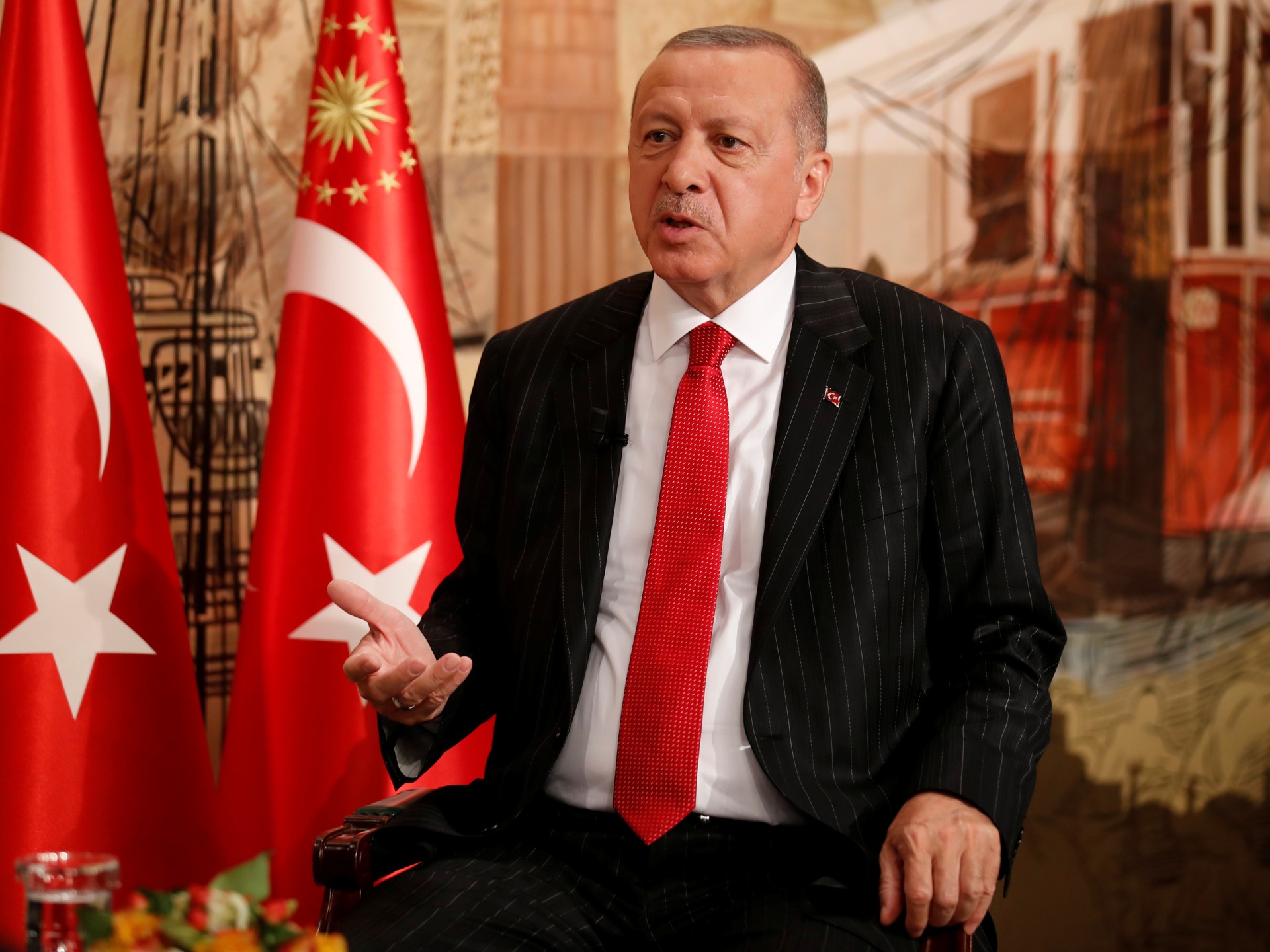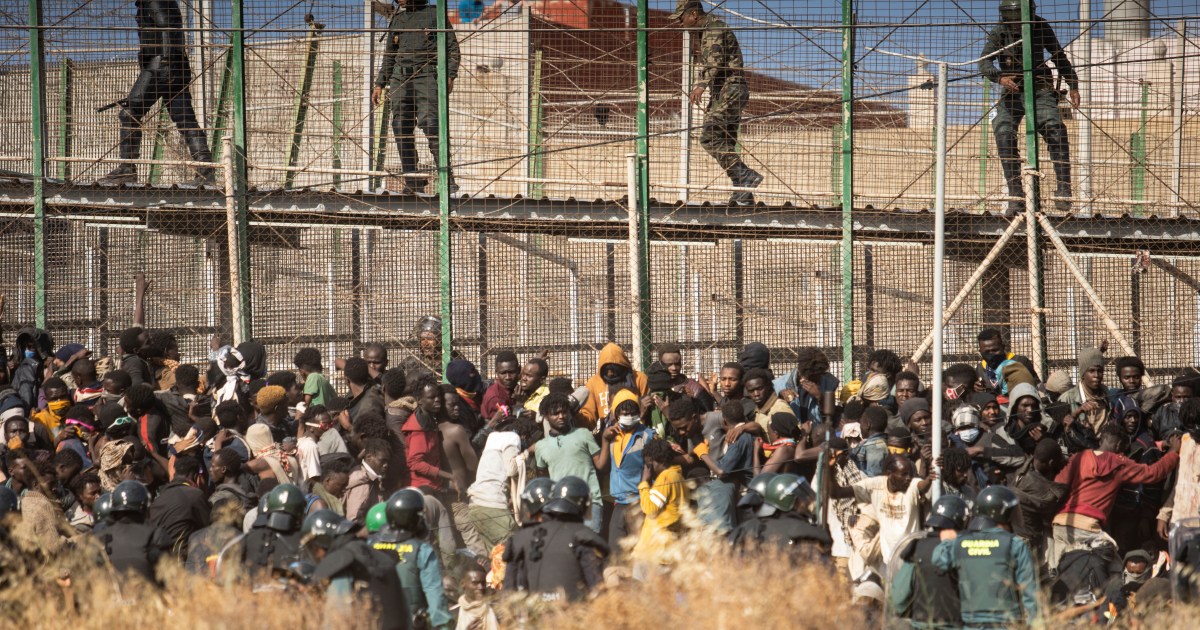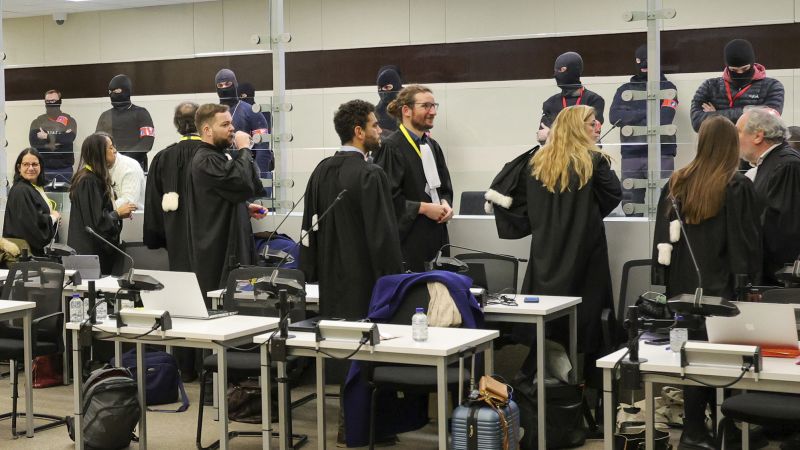Is Turkey uniquely positioned to mediate between Palestinians and Israel?
Istanbul, Turkey – The war on Gaza has seen Turkey step forward as a potential mediator to not only end Israel’s bombardment of the Palestinian enclave, but also bring lasting peace to one of the world’s most intractable conflicts.
President Recep Tayyip Erdogan has led his country’s bid, keen to promote Turkey as a global player and replicate Ankara’s success in mediating between Ukraine and its invader, Russia, to strike a deal for Kyiv to export grain.
Hamas’s October 7 attack on Israel and Israel’s retaliatory air raids on Gaza – which have yet to end – came as Ankara and Tel Aviv were fostering warmer ties after more than a decade of hostility.
Ties to both sides
Turkey has relations with Hamas, making it one of the few countries with any influence with the group that has ruled Gaza since 2007.
Ankara did not declare Hamas a “terrorist organisation”, leading Tel Aviv to protest that Turkey-based Hamas members have been involved in planning attacks on Israel.
“Turkey has a good communication channel with Hamas, which is an important asset,” Taha Ozhan, research director at the Ankara Institute, said. “It has been built up over 17 years, when Turkey was the only country to invite Hamas into [its capital].
“In these times of crisis, the communication channels and relations are important,” said Ozhan, a former chair of the Turkish parliament’s foreign affairs committee.
Turkish officials – led by Erdogan and his foreign minister, Hakan Fidan – have acted on this advantage, seeing a central role for Ankara in resolving the latest Gaza conflict.
Their immediate focus has been on getting humanitarian aid to civilians in Gaza and seeking the release of some 200 hostages taken by Hamas.
Speaking in Beirut on Tuesday, Fidan said “a variety of countries” had asked Turkey for help in releasing their citizens.
“We have started discussing … with the political section of Hamas,” he said. “We’ve been putting a lot of effort to make sure that children and foreigners especially are released.”
Support for Palestine
There is wide public support in Turkey for the Palestinian cause, with pro-Palestine demonstrations drawing thousands of Turks in recent days.
At the same time, Turkey had relations with Israel for much of Israel’s history, until things hit a rough patch in 2010.
That year, Israel killed nine Turks who were on board a Freedom Flotilla trying to deliver humanitarian aid to a besieged Gaza Strip, with a tenth dying after years in a coma. Relations were restored in 2016, only to fall apart again in 2018.
That year, Israel passed a law declaring itself the “nation-state of the Jewish people”, drawing criticism from Erdogan. Then the United States moved its embassy in Israel from Tel Aviv to Jerusalem and Israel killed tens of protesters participating in the Great March of Return in Gaza.
This has resulted in Erdogan being held in high regard by Palestinians.
“Erdogan remains lionised in Gaza, the West Bank, and across much of the Arab world, due to his history of using harsh rhetoric to attack Israel’s policies towards the Palestinians,” said Wolfango Piccoli, co-president at political risk advisory group Teneo.
This lionisation survived when Turkey changed gears last year and started a regional rapprochement drive that saw it rebuilding bridges with Egypt, Saudi Arabia, the UAE – and Israel.
‘New methodologies’
Fidan has been meeting leaders across the region, and held phone calls with US Secretary of State Antony Blinken and Hamas chief Ismail Haniyeh.
Ankara, he said, is seeking to “open the door for a permanent and comprehensive peace” based on a two-state solution, and suggested Turkey could act as a guarantor.
“We don’t believe there will be a permanent solution by using the old methodologies, so hopefully in the upcoming meetings we will continue to express our ideas on the use of new methodologies,” he said in a joint news conference with his Lebanese counterpart on Tuesday.
Ozhan says Turkey may be best placed to put forward a political framework that enables discussions on the future of Palestinians. “Unless we ask that question, everything will be temporary or even arbitrary,” he said.
Ferhat Pirincci, international relations professor at Turkey’s Bursa Uludag University, said: “What Turkey has advocated from the very beginning is that many problems, especially frozen conflicts, can be resolved peacefully and therefore a sustainable peace can be established.”
But Turkey’s efforts at a lasting solution could be thwarted without meaningful engagement from both sides.
“Without talking about occupation, without talking about Palestine and Palestinians’ situation, there’s no room to move, it’s just talk,” Ozhan said.
“It depends on if Israel – and the support it has coming from Washington and Europe – are really interested in mediation.”
Warning of a “ripple effect” that could expand the conflict, he added: “The wise choice should be re-establishing a political context and using this crisis as a leverage to create a political framework. But it depends on Israel and it depends on some Western capitals.”




